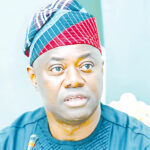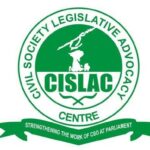A chieftain of the Peoples Democratic Party (PDP), Dr. Adetokunbo Pearse, has criticized the 2025 budget proposal of N47.9 trillion presented to the National Assembly by President Bola Ahmed Tinubu, warning that its passage would further accelerate Nigeria’s economic decline and push the country closer to bankruptcy.
Pearse, a Public Affairs Analyst and Convener of Reset Lagos PDP, expressed his objections to the budget, stating that it failed to address crucial steps necessary to improve the economy. He remarked that the budget’s title—“Budget of Restoration: Securing Peace, Rebuilding Prosperity”—was misleading and did not reflect the harsh economic realities faced by Nigerians.
According to Pearse, the budget’s priorities were deeply flawed, as it lacked provisions for revenue generation while focusing only on expenditure. He described its optimistic growth projections as unrealistic and misleading.
One of the most contentious aspects of the budget, Pearse argued, was the allocation of a staggering N4.91 trillion to defense and security, while a mere N2.4 trillion was allocated to health. He criticized this disparity, claiming that Nigerian hospitals would continue to be inadequate, while the wealthy elite, including the president and his associates, would continue to seek medical treatment abroad.
ALSO READ:Tinubu cancels Lagos events over stampede deaths in Anambra, FCT
“The allocation of only N4.06 trillion for infrastructure, and even less for agriculture, two critical engines of the economy, shows that the economy is set to stagnate or even regress in 2025,” Pearse said.
Pearse also took issue with the budget’s allocation for education. He pointed out that UNESCO recommends that developing countries allocate at least 15% of their annual budget to education to foster growth and development. However, the proposed budget only allocates N3.2 trillion to education, which represents just 7.9% of the total budget—almost half of the UNESCO recommendation.
“This budget undermines the future of Nigeria’s youth and, by extension, the country’s future growth,” Pearse lamented. “Education is the antidote to poverty, and this budget fails to invest adequately in it.”
Furthermore, Pearse criticized the budget for what he described as the president’s tendency to make false claims. He pointed to the assertion in the budget that Nigeria’s export trade was growing with a trade surplus of N5.8 trillion, questioning: “Since when did our import-dependent economy export more than it imports?”
He also dismissed the projections that inflation would be reduced from the current rate of 34.6% to 15% and that the Naira would stabilize at N1,500 to the dollar, calling these statements “preposterous.”
“If the president has the power to control inflation and the value of the Naira, why does he wait until his budget presentation?” Pearse asked. “Economic policy is not about wishful thinking, and the economy does not respond to magic.”
While Pearse acknowledged that the country’s economic crisis could not be solved overnight, he suggested several practical steps for recovery. These included devolving powers to states to exploit mineral resources like lithium, phosphate, and gold, modernizing the agricultural sector for export, and tackling corruption in the oil industry to boost productivity.
He also urged the president to reduce government spending and live within the country’s means. “The president must cut back on concurrent expenditure and lead by example,” Pearse said. “It is unacceptable for government officials to live in luxury while the majority of Nigerians struggle to make ends meet.”
Pearse concluded by stressing that the 2025 budget does not address the necessary steps to improve the economy, leaving Nigeria’s economic future in jeopardy.






